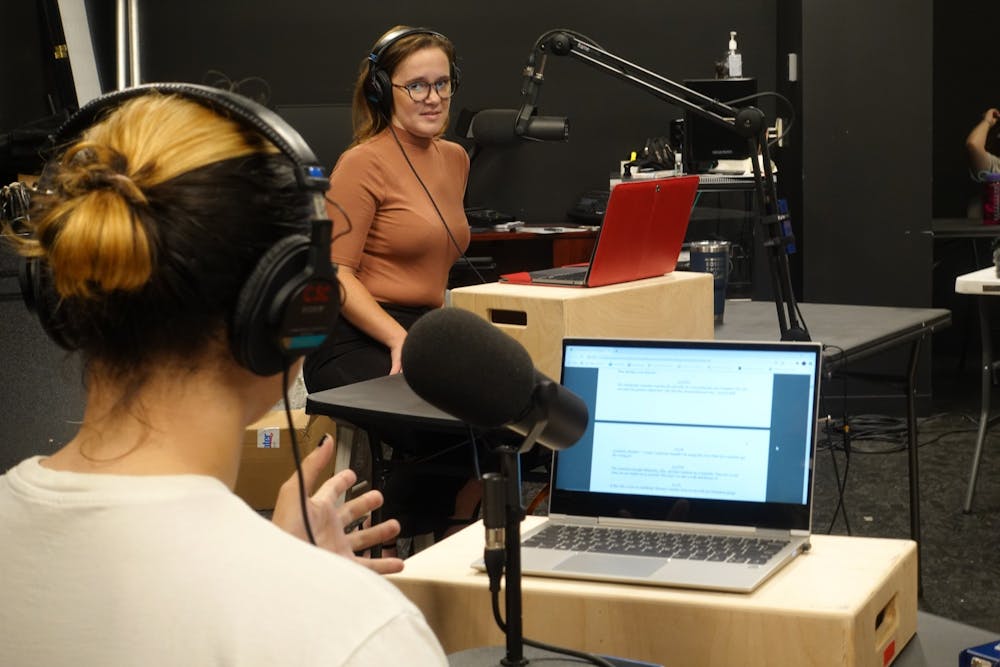The coronavirus pandemic has halted almost all in-person performing arts, but theater companies such as Cardinal Stage have found ways to safely involve people in theater through radio.
Walkabout Radio Plays are stories with recorded scenes that correspond to certain outdoor locations on campus, said Josie Gingrich, the playwright for Women in the Woods radio play. It’s an interactive experience.
“A listener downloads the play and a map, and then listens to a scene at each predetermined stop which creates a really immersive experience,” Gingrich said.
Kate Galvin, artistic director of Cardinal Stage, came up with the idea of Walkabout Radio Plays as she was trying to figure out more alternative ideas for theater during the coronavirus pandemic.
Galvin was inspired by someone else doing a Walkabout Radio Play at a film fringe festival in Philadelphia and decided to try it with Cardinal Stage.
“It’s a very different process with radio, you're always moving quickly,” Galvin said. “From working with writers, involving the actors and working in the studio, you’re always moving.”
The first Walkabout Radio Play, “Women in the Woods,” starts at IU’s Sample Gates and takes the audience on a journey through the woods and stops at the cemetery by Beck Chapel, according to Gingrich.
“It’s a fun, spooky story about a girl who receives a scholarship from a mysterious benefactor and soon discovers her ties to Bloomington are much deeper than she expected,” Gingrich said.
Francesca Sobrer, radio play actor, said she believes radio plays and art in general is transformative. It takes the audience away from where they are. Whether you're feeling sad or want to laugh, art reminds people they're not alone especially during these difficult times.
With many events canceled or postponed, staff members of Cardinal Stage expressed how it has affected their progress in the arts.
“We had to scurry and figure out different ways as artists to perform under these unfortunate circumstances with COVID,” Sobrer said. “We really had to think outside of the box to keep moving forward.”
Since theater performances aren’t being held in person, changes are being made with revenue and methods to keep theater alive.
“It’s hard especially since we are not exactly getting the same kind of revenue we would have before," Galvin said. "Working from home is a struggle. But we have to be resilient and adaptive as artists and I'm glad that I am working with a company that does both of these things.”
Sobrer said while radio theater has its advantages, nothing beats live theater.
“The challenge is to get vocally correct and you get to focus on your voice as an actor,” Sobrer said. “Luckily with radio you can do it over again. With live theater, if you mess up, that's just what happens.”
During these times, it's uncertain when live theater life will go back to normal and if theater will change completely after the coronavirus pandemic. In some ways, theater has become more accessible because audiences aren’t bound by attending an event at a certain time and location, Josie Gingrich said.
Even after the coronavirus pandemic is over, Galvin said artists need to continue to think outside of the box.
“I’m interested to see what happens,” Galvin said. “The theater we produce needs to vital, it has to be bold and it has to be worth the risk.”




